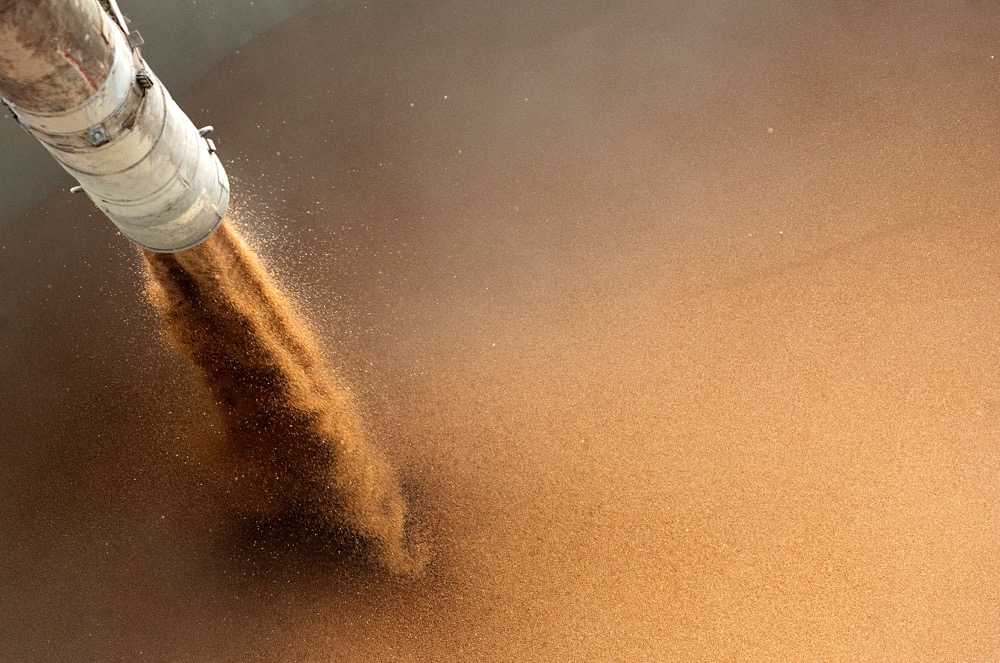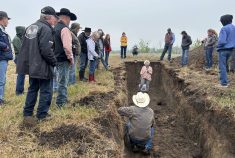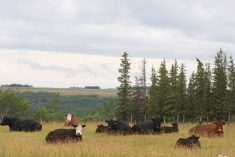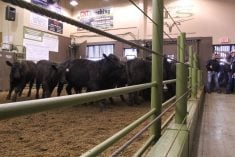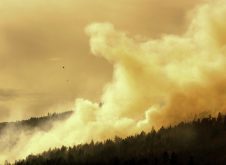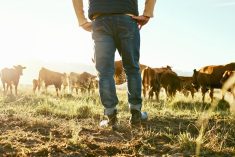We spend a lot of time talking about the effect of agriculture on climate, when we should be talking about the effect of climate on agriculture, Al Mussell says.
Now, I know farmers and ranchers spend a lot of time thinking about the effect of weather, and climate, on their operations (whether or not they believe in human-caused climate change). But, I think much of the chatter outside the farm gate has missed this point, and failed to connect it to the future of global agricultural trade.
I spoke to Mussell, economic researcher with Agri-Food Economics Systems, in mid-April, right in the middle of the ongoing tariff back-and-forth, bond market queasiness, etc. If you ride horses, you know that you should always be looking where you want to go, as that’s where you’ll end up. So, where should we all be looking?
Read Also
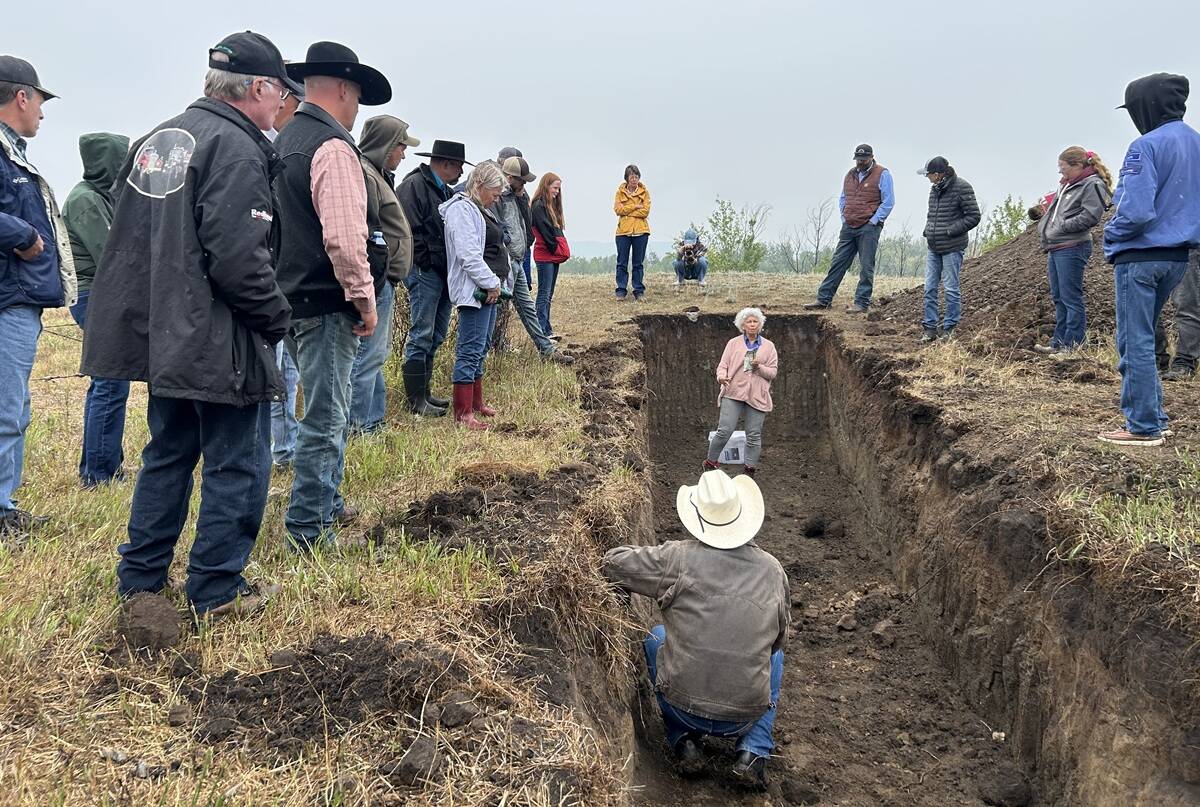
Improving soil health on the ranch
Yamily Zavala, PhD, talks soil health for farmers and ranchers at a grazing club field day at Paradise Hill, Saskatchewan.
I don’t think we’re going to “decouple” our economy from the U.S., and neither does Mussell. Everything from cattle to cars is tightly integrated in our economies. If you have an export business close to the border, “you could make a delivery to a U.S. customer, and you can have your truck and your driver home that night,” Mussell says, adding there are shared expectations and agreements around business practices and contract law.
But everything is in flux right now. Some of the U.S.’s recent actions — especially regarding Russia — have likely caused long-term damage to its relationships with Canada and other countries.
Plus, it’s becoming more difficult to produce food in other parts of the world, especially “low-latitude” countries near the equator. Mussell pointed me to a recent paper by Ted Bilyea, now an ag food consultant and retired executive from Maple Leaf Foods. Bilyea notes that population and GDP are growing in countries such as India and other Indo-Pacific countries, which are also increasingly urbanized. Agricultural production is not keeping pace — India may be shifting from being self-sufficient in grains to importing. And it’s not just India — globally, more land has been converted into agricultural production, but we haven’t built global grain stocks since 2015, he points out. We also know that when people have more money in their pockets, they want more protein. But globally, the beef herd is still retracting, and it will be tough to meet global beef demand.
Water is increasingly scarce around the world as well. Several countries, including the U.S., Mexico, India and China, rely on groundwater basins for irrigation that are rapidly depleting. Many countries are also dealing with increased soil salinity, such as Australia, Argentina, the U.S., Russia and central Asia. India’s salinity and water scarcity problems are growing so severe that Bilyea writes some of its double-crop production may revert to one crop a year, reliant on the monsoon.
Some countries are trying to maintain or boost agricultural output through practices that they likely won’t be able to maintain. For example, Brazil plans to convert 70 million acres of degraded pasture in its Cerrado region to cropland, Bilyea notes. However, it’s also suffering increasingly drier conditions. Sub-Saharan Africa, which also has a growing population, is converting forest and grassland to cropland, and experiencing drier conditions. Southeast Asia, too, is converting tropical forests to cropland.
The bottom line is that ag productivity is likely to slow in several countries closer to the equator, and many of these countries also have growing populations. As Bilyea writes, “the global food system is moving from the era of abundance to a future of increasing scarcity,” and many countries are prioritizing food security.
As countries start introducing more protectionist measures, we might start seeing trade diversion as the trade flow gets reshuffled, Mussell says. For example, Canadian beef exporters might look at countries that like similar cuts to the U.S. and divert some product there. The U.K. or EU member countries are obvious choices. They’ve certainly been frustrating to deal with in the past when it comes to ag trade, but Mussell points out they’re in a different position now.
None of this is easy. China remains a tempting market, except its government tends to weaponize trade, even around food. Our canola farmers know that well, as does Australia. If we gear all of our production to meet China’s massive market demand, that leaves us very vulnerable if China decides to close its doors. Mussell says we’ll need some mechanism of protection against that.
In the future, some other countries facing food insecurity might respond by shutting down food imports, in a bid to control things internally, Mussell says. Others might try to protect agricultural jobs by limiting imports, says Mussell, and we need to anticipate this kind of blowback. Bilyea calls this the “weaponization of food,” and writes that Canada should form a coalition of net exporter countries to shift power back to the net exporters. Net exporters by both volume and value include Canada, Brazil, EU, Australia, Ukraine and New Zealand. The U.S. is now a net exporter by volume only. Bilyea’s paper is available at capi-icpa.ca.
Canada is well-positioned, given our natural resources, strong ag sector and relative resilience to water shortages and climate issues. We’re also a big enough material supplier, but small enough to collectively align some of our practices around these potential export markets, Mussell says. We need our newly minted federal government to recognize this potential, and the growing likelihood of global food scarcity.


